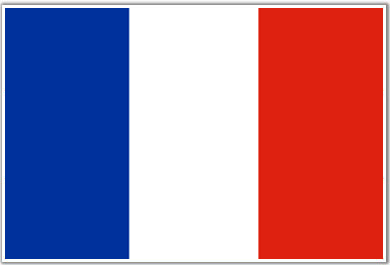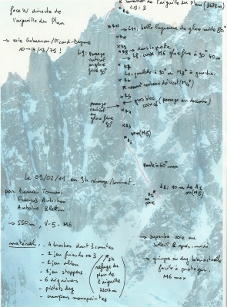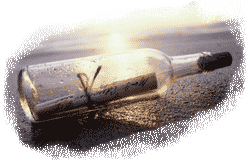Avril 2011

"Philosophie Brute"
In philosophy I am an amateur in every meaning associated with this term.
And using terminology, I try to confine myself to most accurate meanings, the most original and restricted. Whenever I can, I removes from the lexical field I build for my own use, any alteration of meaning due to generalization or use of similar lexical forms in other languages.
For example , I feel ridiculous to try to impose to the term "actually" the meaning of the French "actuellement " as well as to use the French word "régulation" as a synonym of the English term "regulation ". The fact that everybody do so is not an excuse. The confusion of the senses is largely cause of the current disarray1.
Philosopher.
Depending on the meaning he gives to this term , everyone can judge who is or is not , " Philosopher " . Philosopher , is this a status , established by a diploma on studies of philosophers who preceded you ? Is it enough that you teach philosophy to make you a philosopher?
Philosopher, is it a contractual job with a set of rules of the art and of procedures ?
Or is it a way of life, to consider and act conscientiously, with an ethic ?
The Publications of modern philosophy are interspersed with references and quotes, given as points of support to strengthen each of the assertions of the author. So a modern author progresses on the way of his thesis.
Such a progression evokes how does a climber along a wall.
Except that the mountain of the philosopher seems infinitely high. He never sees the top.
A long time ago , to the time of the conquest of unexplored peaks , climbers had invented artificial climbing. Using lot of pitons, mousquetons, stirrups, strings, the climbers equip walls with amounts of support points, reliable references. Any movement is reasoned, assured of success.
This was complicated, but, with this, one could pass, slowly but surely, any difficult passage .
Of my childhood in the pre-Alps of Haute Savoie, I remember my dreams of mountain climbing .
I did read many novels and stories : Frison Roche, Hillary and Tensing, Lionel Terray and Gaston Rébuffat , and I forget some of others, were all my heroes.
I remember the summer of 1966 ; I was 17 years old: The weather was suddenly deteriorated in the north of the Alps , a group of German climbers were stranded in the wall of the needle of the Dru, above Chamonix. Intermittently, we can see them from the valley. The newspapers reported day after day the evolution of drama. The company of guides Chamonix held a rescue group , which progressed slowly to reach the climbers in trouble .

Slowly.
So slowly that an American beatnik named Gary Hemming, and the guide Desmaison René François Guillot decided to go there themselves.
Otherwise.
While they started after the official group, they the have taken speed and passed dynamically hurdles usually needing lot of time, and has reached in time the German group to rescue.
The story was the subject of a story in a weekly magazine, which earned René Desmaison to be excluded from the Compagnie des Guides de Chamonix.
The story shown the way to new alpinism practices, elegant alternative to pitons and calipers of artificial climbing, and ropes it requires.
As usual, the messenger was first convicted before any further thought.
A long time after, reading a recent philosophy thesis I remembered this story.
Although I am customary of scientific research publications, I was astonished to find here in this field of essential things, in a systematic way, in almost every sentence, some cryptic mention in square brackets [ ] which reference an article in the bibliography.
They made me think of pitons and of stirrups, these references of which these practices philosophical publications abuse, as if at each time, the author wished to assure the slow movement of his thought, giving preference to an ancient author rather than to himself.
Why this, that is necessary in a publication of research results in biology or nuclear physics, seem to me inadequate in works of philosophy ?
Maybe because we tend to confuse the philosophical practice with teaching of philosophies.
Why is this objectionable ? In my view this is that philosophy, to be by essence above the sciences, is not itself a science, failing to stick to clinical observations, his statements are not a priori refutable.
To return to drama of the Dru needle , I learned that the climbing routes that were used then are gone, washed away by a series of rock fall.
The story will not spawn in the same way , spatial references that are the granite walls have changed.
jumping dynamically a climbing jack to another, Gary Hemming took upon himself the responsibility of the apprehension of the rocky context in which he evolved.
There he left minimal traces on a course he had, step by step, thoroughly assimilated.

There are here no place for these calipers used for mountaineering, that are similar to references in philosophical publications, of which one can see the resemblance with the artifice of an extra chevron < [] [ ] [] !
Of this demonstration of the elegance of free climbing, I want to keep a philosophy.
Is it not better to leave off of our route all philosophies that we have read, and from which we learnt lessons for our own way of dealing with things ?
Is it not that way that was written all the original philosophical texts, which left the author full responsibility for what he said, as is the climber is of his movement ?
Are quotes anything but rock ledges, for their use of terms of which the meaning is an issue ?
Each day brings knowledge that crumble some old philosophy routes that are so irreparably refuted, or otherwise consolidate others, which may fall in turn.
In the valley, facing the needles, should be studied the topographies written by all those who climbed several times before you, by all possible means. Should be read the story of those who initiated and signed with their names.

And before embarking on these great walls , one should prepare himself for every action on small rocks, whose summits without perspective are not the object. They are only there to exercise the practice of basic procedures that one must assimilate, imitating others, the systematic actions.
But it should know that stories speak only as of their past context, and that the context is renewed each time, which requires prudence, intelligence, imagination, and a little creative audacity.
I need to study philosophy, but only in order to retain their "raw" appearance of direct analysis of things, devoid of any reference to what said another philosopher. I need to see these in the context of their historical perspectives. I appreciate more the history of philosophies that the value of their content. About the facts, I read only what clinicians relate.
having to face our actual virgin route on the wall we have to climb, is it suitable to carry a heavy bag ? to take with you all the history books, added to some kilograms of material ?
In the path of every day, we are solely responsible of our own philosophy, based on our own judgment .
Obviously this is dangerous. Every mistake, every awkwardness can be fatal , which requires great caution. But the biggest mistake is it not to trust , to hang oneself on an old piton planted there, no one knows under what circumstances ?
From the ancient philosophers, who had no other references that their own observations and reflections, I only want to keep some gestures, some elements of method:
Question the appearance of all things,
Challenge the beliefs and the opinions that are commonly shared,
Make a direct clinical observation of facts, without the intermediary of another philosopher,
And analyze the intentions of humans on this battlefield on which fights, as he usually do, any philosopher.
That's why I want to exercise, for my own life, as an amateur, my own philosophical skill.
I am " démocritique " that mean in french "des mots critique" , to criticize the common wrong use of words. And I especially conducts the trial of intentions associated over time to the diversity of their meanings.
Practice of formal metaphysic
The hazards of life led me to metaphysics by an unlikely way: my research career has led me to a professional practice of the ontologies.
The ontologies which I practice are plural by pragmatism; the experience show that the unique singular ontology is still a controversial utopia for professional philosophers.
The ontologies which I practice do not claim to completeness, as human knowledge can not claim it.
The ontologies which I practice are based on how the language imposes by the common names the use of categories, and of verbal relations between these categories and with individual things designated by proper names we associate to all particular things, of which our languages impose assignment to multiple categories.
The ontologies which I practice associate to any common name his "own proper name", so to be able to describe his own characteristics, in addition to characters of the individual things in these categories.
The ontologies which I practice meet exactly the definition of an ontology, defined as a domain of metaphysics, in that they ask the same meaning of representations that human languages give to everything tangible or intangible, conceptual or experimental.
The ontologies which I practice are formal, described in a computer language of languages, so formalized in order to be compiled by an information processing software, neutral with respect to these, capable of ensure consistency, and supporting the treatments of inference engines .
This formal ontological practice is a critical rigor school of earlier philosophies.
To be "brut", my philosophy is based on the experience of the rigor imposed by the intolerance of computers against all kinds of errors.
Trial of intentions ?
The common thought morally condemns such a trial.
Rightly and with bad intentions, because this is to confuse the conduct of a trial, and the verdict of judgment.
It appears from the clinical observation of their behavior that vertebrates have no other choice for survival than to criticize the intentions of those around them.
With all the relativity of the concepts of good and evil, is it not survival from the point of view from who is concerned, that is good ?
Thus, because it is , as everyone should recognize , for my survival , I always instruct the trial of intentions. Starting with those of those who disapprove of the practice .
Thus, for my benefit , I practice a philosophy "Brut"
"Brut", like in "Art Brut" .

1
Albert Camus: "the bad naming of things adds to the misfortune of the world."
Into my texts I prefer to insert only citations of clinical references, reserving the quotes from philosophers as to be placed in the notes section at the bottom of page.
As a climber who climbs on a peak without pitons or stirrups. With all due respect to the philosophical works accumulated by humanity, I myself should be able to provide only what I think, avoiding any "second hand" philosophy.


